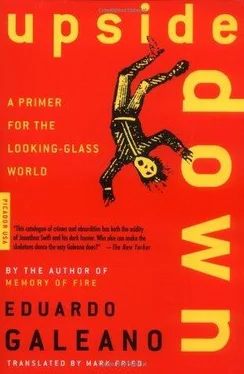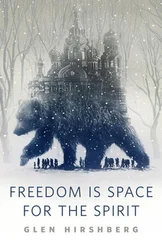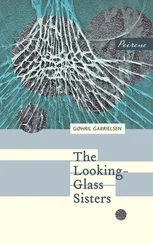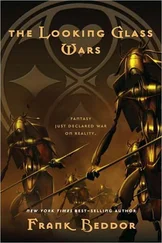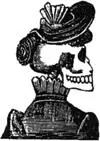
• the looting of the public treasury by corrupt politicians answers to the name of “illicit enrichment”
• “accidents” are what they call crimes committed by cars
• for the blind, they say “the unseeing”
• a black man is “a man of color”
• where it says “long and difficult illness,” it means cancer or AIDS
• “sudden illness” means heart attack
• people annihilated in military operations aren’t dead: those killed in battle are “casualties,” and civilians who get it are “collateral damage”
• in 1995, when France set off nuclear tests in the South Pacific, the French ambassador to New Zealand declared, “I don’t like that word ‘bomb.’ They aren’t bombs. They’re exploding artifacts”
• “Getting Along” is what they call some of the death squads that operate under military protection in Colombia
• “Dignity” was what the Chilean dictatorship called one of its concentration camps, while “Liberty” was the largest jail of the Uruguayan dictatorship
• “Peace and Justice” is the name of the paramilitary group that in 1997 shot forty-five peasants, nearly all of them women and children, in the back as they prayed in the town church in Acteal, Chiapas, Mexico.

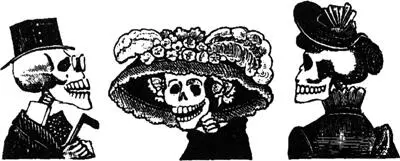

Subordinates owe eternal obedience to superiors, just as women owe obedience to men. Some are born to rule, others to be ruled.
Racism, like sexism, is justified by genetic inheritance. The poor are damned not by history but by biology. Their fate is written in the blood, and worse yet, their inferiority chromosomes carry the evil seeds of crime. When a poor, dark-skinned man approaches, red lights flash and alarm bells ring.
FABLES, LABELS, AND SIMPLE UNABLES
In the Americas and Europe the police hunt stereotypes guilty of wearing an unconcealed face. Every nonwhite suspect confirms the rule written in invisible ink in the depths of our collective conscience: crime is black or brown, or at least yellow.
This demonization ignores history. Over the past five centuries, white crimes aren’t hard to find. No more than one-fifth of the world’s population in the Renaissance, whites already claimed to embody God’s will. In his name they exterminated untold millions of Indians in the Americas and abducted untold millions of blacks from Africa. White of skin were the kings, vampires, and flesh traders who founded hereditary slavery in the Americas and Africa, so that the children of slaves would be born slaves in the mines and on the plantations. White were the authors of the countless acts of barbarism that civilization committed over the centuries, imposing white imperial power on the four corners of the earth by blood and fire. White were the heads of state and the warrior chiefs who, with a hand from the Japanese, organized and executed two world wars in the twentieth century, killing sixty-four million people, most of them civilians. And white were those who planned and carried out the Holocaust against the Jews, Reds, Gypsies, and gays in the Nazi death camps.
The certainty that some are born to be free and others to be slaves has guided all empires since the world began. But it was with the Renaissance and the conquest of the Americas that racism became a system of moral absolution at the service of European gluttony. Since then, racism has ruled, dismissing majorities among the colonized and excluding minorities among the colonizers. In the colonial era racism was as essential as gunpowder, and in Rome pope after pope slandered God by attributing to him the order to loot and plunder.
In America a new vocabulary was invented to locate people on the social scale according to their degree of degradation by miscegenation. “Mulatto” was, and is, a mixture of white and black, an evident allusion to the mule, the sterile offspring of a male donkey and a mare. Other terms classified the thousand colors engendered by the successive embraces of Europeans, Americans, and Africans in the New World: English names like half-caste, quadroon, octoroon, mustee, sambo, griffe, or the Spanish castizo, cuarterón, quinterón, morisco, cholo, albino, lobo, zambaigo, cambujo, albarazado, barcino, coyote, chamiso, zambo, jíbaro, tresalbo, jarocho, lunarejo, and rayado. And there were Spanish names meaning “turn-back,” “there-you-stay,” “hang-in-the-air,” and “I-don’t-understand-you,” to baptize the fruits of these tropical salsas and to define greater or lesser degrees of hereditary damnation.
Identity
Where are my ancestors? Whom shall I celebrate? Where shall I find the raw material? My first American ancestor … was an Indian, an early Indian; your ancestors skinned him alive, and I am an orphan.
— Mark Twain, who was white, in the New York Times, December 26, 1881
Of all the names, “I-don’t-understand-you” is the most revealing. In the five centuries since the so-called discovery of America, we’ve had nothing but I-don’t-understand-yous. Christopher Columbus thought that the Indians were from India, that Cubans lived in China and Haitians in Japan. His brother Bartholomew burned six Indians alive when all they had done was bury Catholic medallions so the new gods would make their crops fertile. When the conquistadors arrived on the eastern coast of Mexico they asked, “What is this place?” The natives answered, “We don’t understand a thing,” which in the Mayan language sounded like “Yucatan,” and that is what the region has been called ever since. When the conquistadors reached the heart of South America they asked, “What is this lake?” The natives answered, “Water, sir?” which in the Guaraní language sounded like “Ypacaraí,” the name promptly conferred on the lake near Asunción, Paraguay. Indians were always beardless, but in his Dictionnaire universel of 1694 Antoine Furetière described them as “furry and covered with hair,” because the European iconographic tradition held that savages were always hairy like monkeys. In 1774, the priest charged with teaching catechism in the town of San Andrés Itzapa in Guatemala discovered that the Indians worshiped not the Virgin Mary but the serpent crushed under her foot, the serpent being a Mayan divinity. He also discovered that they venerated the cross because it was shaped like the sacred meeting of the rain and the earth. At the same time in the German city of Königsberg, Immanuel Kant, who had never been to America, declared that Indians were “incapable of civilization” and were destined to be exterminated. In fact, extermination was occurring, though it had little to do with their nature: not many Indians survived the harquebusades and cannonades, the attacks of virus and bacteria unknown in the Americas, and the endless days of forced labor in the fields and in the gold and silver mines. Many were condemned to the lash, the stake, or the gallows for the sin of idolatry. Those “incapable of civilization” lived in communion with nature and believed, like many of their descendants today, that the earth is sacred, as is all that walks on it or grows from it.
Читать дальше
